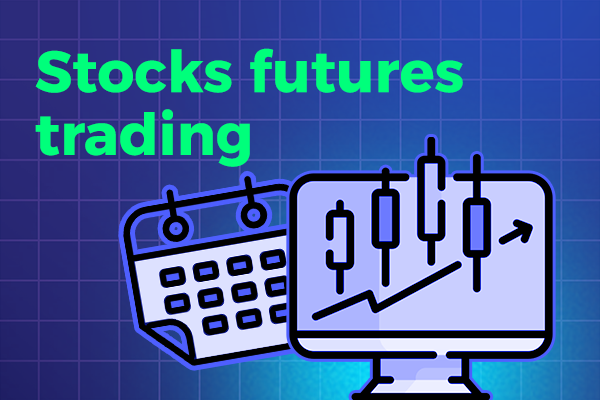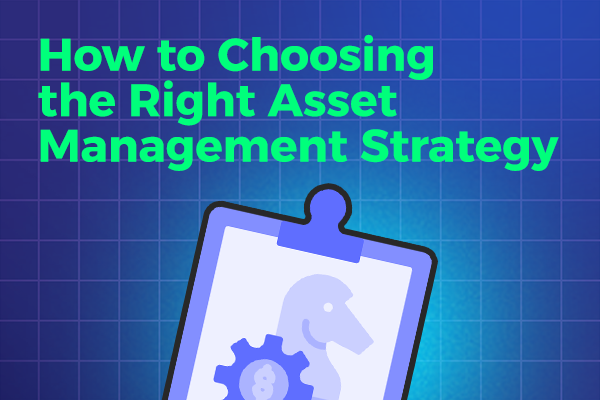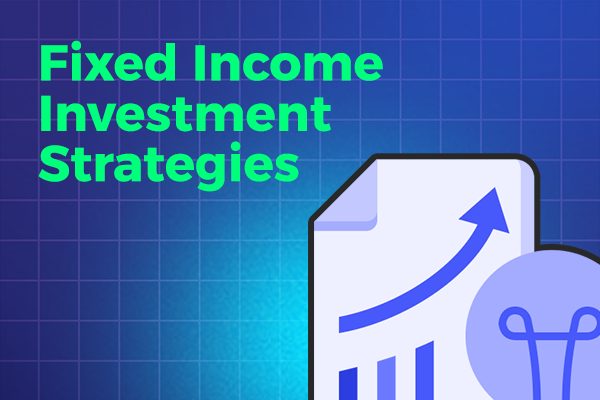The Benefits of Stock Futures Trading: Why You Should Consider Adding it to Your Portfolio
Are you looking for a way to diversify your investment portfolio and potentially increase your returns? Look no further than stock futures trading. While it may seem daunting at first, stock futures trading offers a variety of benefits that make it worth considering. For starters, it allows you to speculate on the future price of a particular stock without actually owning it.
This means you can potentially profit even if the stock price drops. Additionally, stock futures trading can be a way to hedge against market volatility, providing a level of protection for your overall portfolio. And with the ability to trade futures contracts on a wide range of assets, from commodities to currencies to stock indexes, the opportunities for diversification are virtually endless. In this article, we’ll explore the many benefits of stock futures and why you should consider adding it to your investment strategy.
Understanding Stock Futures Trading
Stock futures trading is a type of derivative trading that allows investors to speculate on the future price of a particular stock. A futures contract is an agreement to buy or sell a specified asset, such as a stock, at a predetermined price and date in the future. Unlike stock trading, where you buy and sell actual shares of a company, futures trading involves buying and selling contracts that represent a specific amount of a particular stock.
One of the key advantages of futures trading is that it allows investors to profit from both rising and falling markets. For example, if you believe that the price of a particular stock is going to increase in the future, you can buy a futures contract at the current price. If the price of the stock goes up, you can sell the futures contract at a higher price and realize a profit. On the other hand, if the price of the stock goes down, you can sell the futures contract at a lower price and still profit from the trade.
Futures trading can be a bit more complex than traditional stock trading, as it involves a variety of factors that can impact the price of a futures contract. These factors include supply and demand, interest rates, and geopolitical events. To be successful in futures trading, it’s important to have a solid understanding of these factors and how they can impact the markets.
Unlock Wealth: Sign Up Now for Smart Investing Success
Benefits of Stock Futures Trading
There are several key benefits to adding stock futures to your investment portfolio. One of the biggest advantages is the ability to profit from both rising and falling markets. This means that even if the stock market is experiencing a downturn, you can potentially still make a profit through futures trading.
Another benefit of futures trading is the ability to hedge against market volatility. By holding futures contracts on stocks or other assets, investors can protect themselves against potential losses in their portfolios. For example, if you hold a futures contract on a stock that is expected to decline in value, you can offset potential losses in your stock portfolio by profiting from the futures contract.
Futures trading also offers the potential for greater leverage than traditional stock trading. Because futures contracts require only a fraction of the capital required to buy actual shares of a stock, investors can potentially control a larger position in the market with less capital. This can lead to greater potential returns, but it’s important to keep in mind that leverage can also increase the potential for losses.
Stock Futures Trading vs. Stock Spot Trading
While stock futures trading and stock Spot trading share some similarities, there are also key differences between the two. One of the biggest differences is the level of risk involved. While both types of trading involve risk, futures trading generally involves higher levels of risk due to the use of leverage and the potential for rapid price movements.
Another difference between stock futures and stock trading is the level of control over the underlying asset. With stock trading, investors own actual shares of a company and have the ability to vote on company matters and receive dividends. With futures trading, investors do not own the underlying asset but instead hold a contract that represents a specific amount of the asset.
Finally, stock futures trading and stock trading may require different levels of investment knowledge and experience. While both types of trading require a solid understanding of market dynamics and trading strategies, futures trading can be more complex and may require a greater level of expertise.
Risks Involved in Stock Futures Trading
As with any type of investment, there are risks involved in stock futures trading. One of the biggest risks is the potential for rapid price movements. Futures contracts can be highly volatile, and prices can change rapidly based on a variety of factors. Additionally, the use of leverage in futures trading can amplify potential losses.
Another risk to consider is the potential for counterparty risk. When you enter into a futures contract, you are making an agreement with another party. If that party defaults on the agreement, you could potentially suffer significant losses.
Finally, it’s important to consider the potential for unexpected events to impact the markets. Geopolitical events, natural disasters, and other unexpected events can all impact the price of futures contracts and lead to unexpected losses.
Strategies for Successful Stock Futures Trading
To be successful in stock futures trading, it’s important to have a solid trading strategy in place. One common strategy is trend following, which involves analyzing price trends over time to identify potential entry and exit points. Another strategy is mean reversion, which involves identifying situations where the price of a futures contract has deviated significantly from its historical average and taking a position in the expectation that the price will revert to its mean.
It’s also important to have a clear understanding of your risk tolerance and to manage your risk carefully. This may involve using stop-loss orders to limit potential losses or diversifying your portfolio to spread your risk across multiple assets.
Finally, it’s important to stay up-to-date on market news and events that can impact the price of futures contracts. This may involve following financial news outlets, attending industry conferences, or subscribing to newsletters and other market analysis resources.
How to Get Started with Stock Futures Trading
If you’re interested in adding stock futures trading to your investment portfolio, there are several steps you can take to get started. First, you’ll need to open a futures trading account with a reputable broker. This will allow you to buy and sell futures contracts on a variety of assets.
Next, it’s important to gain a solid understanding of futures trading and the factors that can impact the markets. This may involve taking courses or reading books on trading strategies and market analysis.
Finally, it’s important to start small and gradually build your position in the market. This may involve starting with a small investment and gradually increasing your position over time as you gain experience and confidence.
Choosing the Right Broker for Stock Futures Trading
Choosing the right broker is critical to success in stock futures. When selecting a broker, it’s important to consider factors such as fees, trading platforms, and customer support. You’ll also want to look for a broker that offers a wide range of futures contracts on a variety of assets.
It’s also important to consider the reputation of the broker and to read reviews and feedback from other traders. This can help you to identify potential issues or concerns with the broker before you start trading.
Tools and Resources for Stock Futures Trading
There are a variety of tools and resources available to help you succeed in stock futures trading. These may include trading platforms, charting tools, and market analysis resources. Many brokers also offer educational resources, such as webinars and trading courses, to help traders improve their skills and knowledge.
Finally, it’s important to stay up-to-date on market news and events that can impact the price of futures contracts. This may involve following financial news outlets, attending industry conferences, or subscribing to newsletters and other market analysis resources.
Conclusion: Is Stock Futures Trading Right for You?
Stock futures trading offers a variety of benefits for investors, including the ability to profit from both rising and falling markets, hedge against volatility, and diversify your portfolio. However, it’s important to carefully consider the risks involved and to develop a solid trading strategy before getting started.
If you’re interested in stock futures, it’s important to take the time to learn about the markets and to choose a reputable broker that can help you achieve your investment goals. With the right knowledge and tools, futures trading can be a valuable addition to your investment portfolio.




